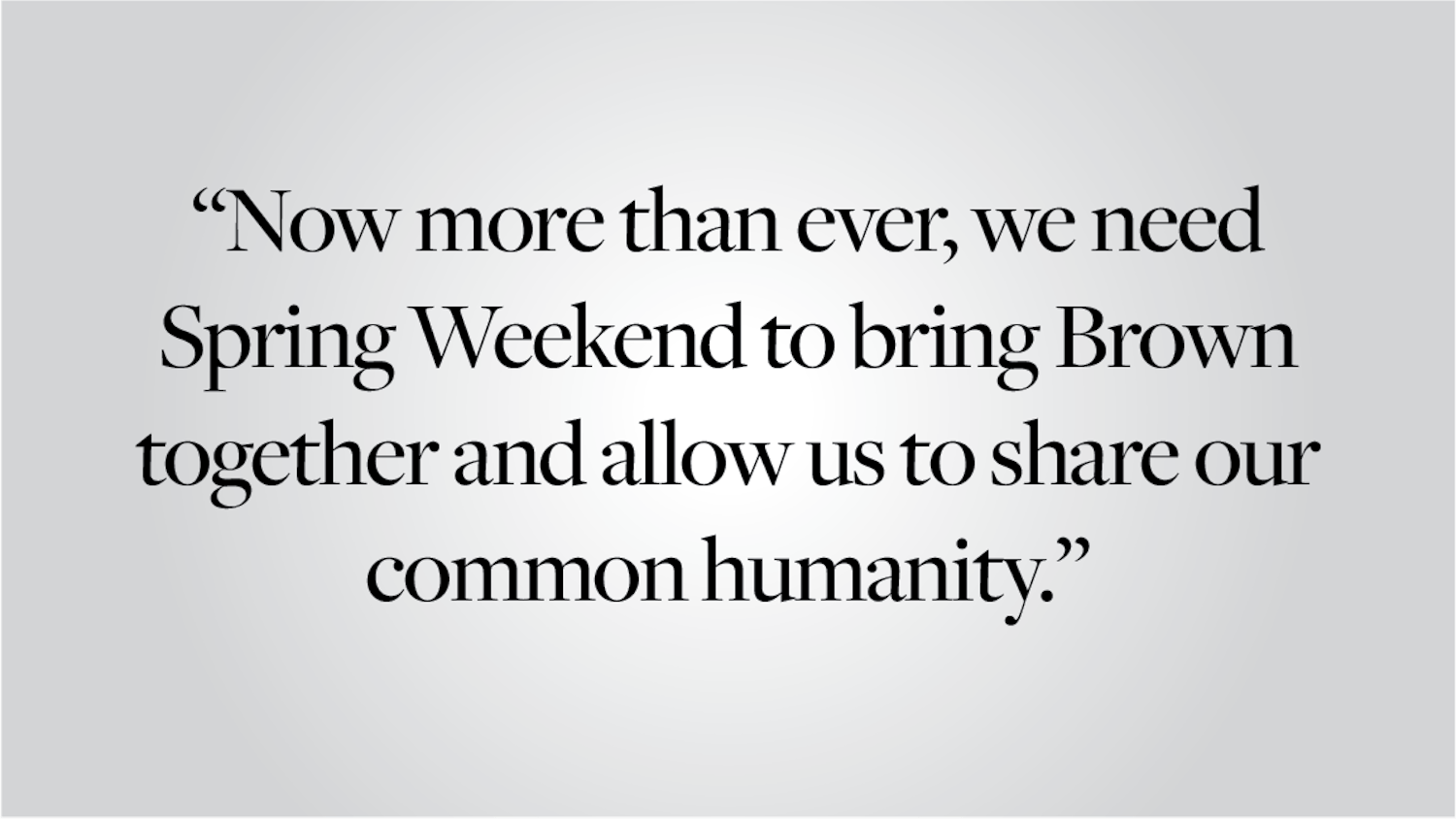Thursday’s Herald featured a column by Peter Makhlouf ’16 titled “ROTC: Return of the Criminals.” I and many to whom I have spoken disagree with Makhlouf’s stance, and I feel compelled to address some of the points made in his piece.
First and foremost, attempting to obtain a college degree through an ROTC scholarship does not make one a criminal, as Makhlouf’s title suggests. I simply couldn’t believe that such a generalized statement that referred to the ROTC and its participants as criminals was made by a fellow Brown student. Not only is it disappointing, but it is also incredibly offensive to the honest and hardworking individuals who have chosen to continue their educations while preparing themselves for future careers in defending and serving their country.
Pointing out that Brown has historically been an anti-war school does not validate the argument. Times have changed, and society has changed with time. Along with prohibiting ROTC from campus, Brown also did not allow female or black students to matriculate. Does the argument for embracing the University’s rich anti-military history imply that the type of people allowed on Brown’s campus should be reflected by its historical ways — unjust ways — in order to preserve tradition? I’m guessing not. Apparently traditions should only be embraced if they suit Makhlouf’s political beliefs.
Not only does Makhlouf offend those who are attempting to make better lives for themselves, but he also calls for a less inclusive campus. Brown is all about diversity and acceptance, and his proposition to prevent ROTC programs threatens the future of those who cannot afford college and who may want to become part of the military. The paranoia of military indoctrination has led Makhlouf to advance a notion that restricts liberty, opportunity and diverse acceptance. Students have the right to not associate with ROTC or any involved members, and the right do so comes from the assurance that their individual freedoms and rights are protected.
In 2011, former President Ruth Simmons released a statement that read, “We should commit to helping to arouse greater national attention to the discrimination of the military and others against transgender individuals.” The University is filled with some of the most intelligent and promising minds in the country. Therefore, it is a student’s duty to reflect on societal shortcomings and work to overcome such obstacles. Ignoring the issue of transgender discrimination by preventing ourselves from partaking in the conversation — by banning ROTC — will only extend the lifespan of such policies. It’s in Brown’s interest to participate in the ROTC program in order to utilize the knowledge and ambition that our students possess so that we can reform the discriminatory aspects of the military system.
Makhlouf writes, “The push for normalizing militarism on our campus needs to be opposed because Brown students are so often unsure of their political leanings.” This brings another problem into the equation. The claim appears to insinuate that Brown students are unable to think for themselves and, therefore, need an ROTC program to influence or sway their positions. The University supposedly encourages constructive discussions, even when varying viewpoints are at play. Personally, I am very confident in the ability of Brown students to form their own educated opinions.
The ROTC program is crucial for extending educational opportunities to aspiring students. In 2011, 77 percent of Brown alums surveyed were in favor of expanding ROTC, according to a 2011 report by the Committee on the Reserve Officers’ Training Corps. The program has been a means for students to ascend the academic ladder and progress through life with the prospects of self-improvement.
We must acknowledge the value of the ROTC program and the opportunities it provides. As Brown students, we have tried to uphold the notions of liberty and freedom on campus. Preventing the formation of an ROTC program will restrict individual liberty and will further solidify a growing perception of Brown as unwilling to accept free speech and the sharing of diverse opinions — the media’s version of the Ray Kelly incident.
We all have the liberty to make decisions for ourselves in order to fulfill our lives and purposes. All of us are provided with the right to association and are able to affiliate or distance ourselves from whomever we choose. The claim that ROTC is a “return of the criminals” is incredibly slanderous and narrow-minded. If you disagree with the program, then utilize your right of association. In doing so, however, it is very discriminatory and aggressively harmful to future students and the campus environment.
Taylor Grenawalt ’17 is president of Young Americans for Liberty and a political science and public policy concentrator. He can be reached at taylor_grenawalt@brown.edu




